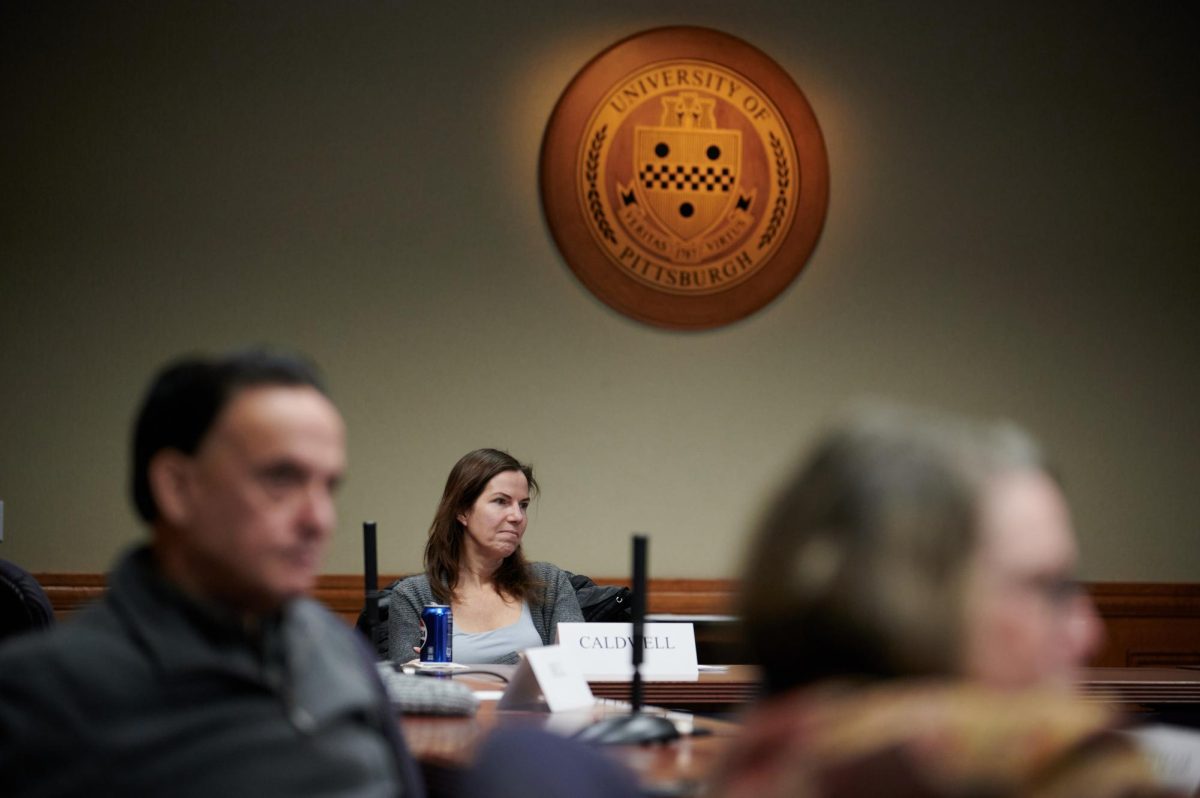On Nov. 20, Pitt’s Equity, Inclusion and Anti-Discrimination Advocacy Committee (EIADAC) voted to recommend establishing an Ad Hoc Committee on Antisemitism. But in an email one week later, Faculty Senate members learned the executive committee is “no longer pursuing” the creation of the ad hoc committee.
According to Bridget Keown, co-chair of EIADAC, the process was delayed to assemble a group better equipped to handle the committee’s sensitive focus and ensure greater inclusivity.
Keown said she felt “frustrated” by the outcome, believing that communication had “broken down,” giving no opportunity for faculty to provide feedback.
“A lot of people have been having similar conversations in parallel with each other, so there haven’t been a lot of chances for collaboration,” Keown said. “That has been really disappointing.”
The development of the ad hoc committee on antisemitism has been a topic of conversation in the Faculty Assembly for the past month. Keown said she’s “hopeful” that higher administration committees could take the ad hoc into their hands.
“Thinking of the authority and the potential for long-term ingrained change and progress, it would be wonderful If the administration were involved and were a stakeholder in the process,” Keown said.
Victoria Grieve, a member of EIADAC, agreed, saying “the administration should be doing this kind of work, not a faculty committee.”
This ad hoc, when it is created, will be the first Faculty Assembly ad hoc to combat intolerance. Grieve said she feels “concerned” about the precedent creating this ad hoc committee could set for other intolerance-related issues in the future.
“The Faculty Senate didn’t see fit to create an ad hoc committee to address any of the horrible transphobia that’s happened the last two-and-a-half years, or any of the racism or disability [discrimination],” Grieve said. “Never anything to address any of the bigotry on campus.”
The University Senate originally planned to use this ad hoc committee to prevent violent incidents and “escalating rhetoric” targeting Jewish students. Pitt’s Faculty Assembly met on Nov. 6 to propose the creation of the ad hoc committee on antisemitism. EIADAC took this proposal for discussion, holding a meeting for it on Nov. 8 to hear from students.
During EIADAC’s meeting on November 20, eight members voted in favor to send the committee’s resolutions to the Executive Council. However, members disputed whether or not Pitt should have their own definition of antisemitism instead of the current adapted definitions.
While Pitt has adapted the IHRA’s definition of antisemitism, it has not developed its own. In a Composition, the ad hoc committee stated they do “not have the authority to impose a definition of antisemitism on the Pitt community. It is not empowered to set limits on free expression on campus or to limit protected speech, and it is not empowered to impose restrictions.”
Grieve believes delaying the ad hoc committee by a month and lacking a clear definition of ‘antisemitism’ leaves the “door open for people to be attacked for being anti-Israel or Pro-Palestine, which is different from being antisemitic.”
During the Nov. 20 meeting, Keown said she supported the resolution as an “imperative” solution to addressing antisemitism on campus.
“I think it is work that desperately needs to be done and desperately needs the support of as many people as possible in order for the change to be beneficial and long-lasting to as many people as possible,” Keown said.
Jennifer Brick Murtazashvili, a graduate school of public and international affairs professor, said the creation of the ad hoc committee was “absolutely necessary” following the attacks on Jewish Pitt students earlier this semester.
“This isn’t a game of global politics,” Murtazashvili said. “This is simply our effort to understand what is happening.”
Kristin Kanthak, Vice President of the University Senate, stressed the importance of centering student voices in addressing antisemitism at the Nov. 20 meeting.
“People are really upset and angry about this,” Kanthak said, “and I think we need to be clear about why.”
Faculty Senate President Robin Kear is set to address the delay in the ad hoc committee’s formation during Faculty Senate’s monthly meeting on Wednesday, Dec. 4.


